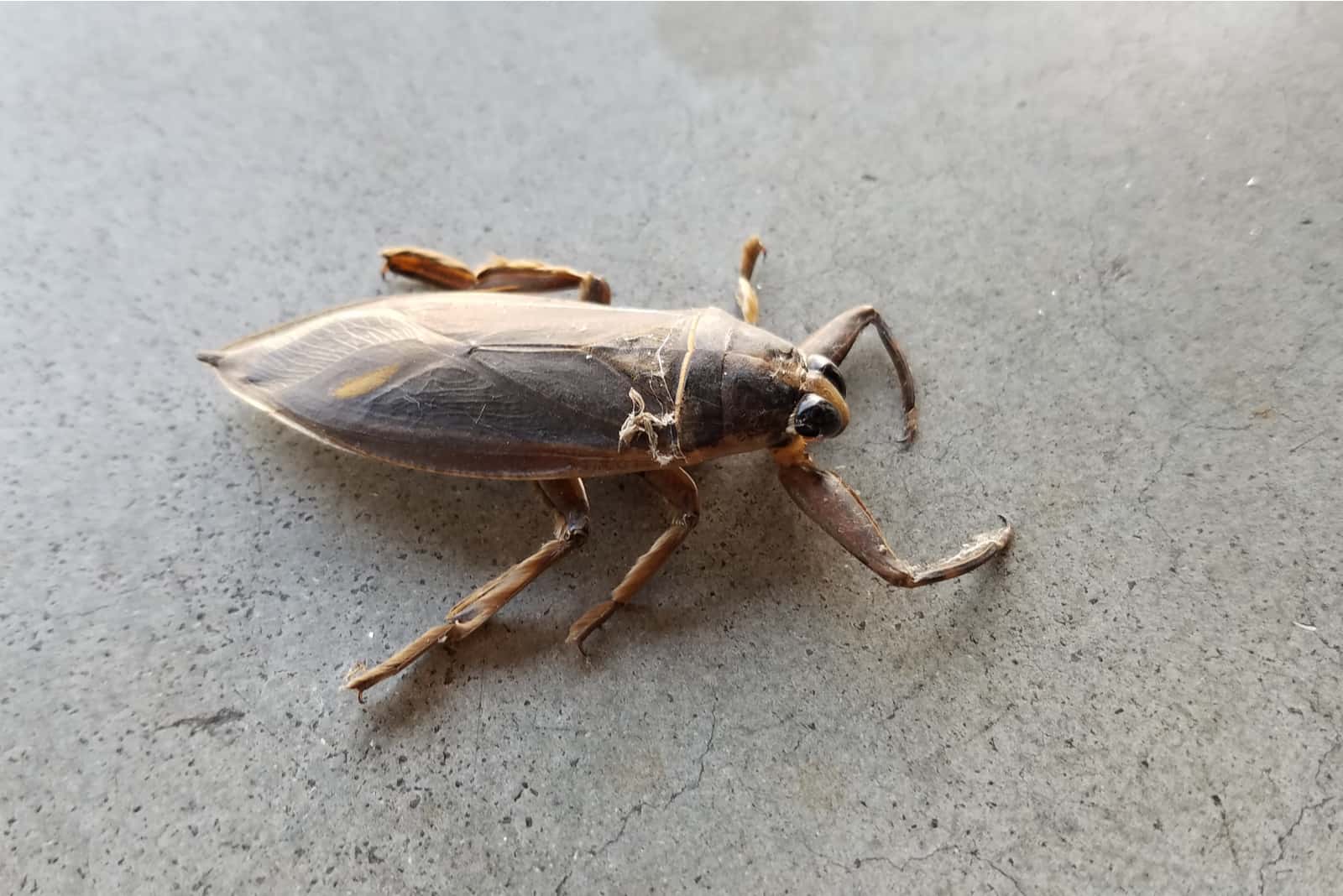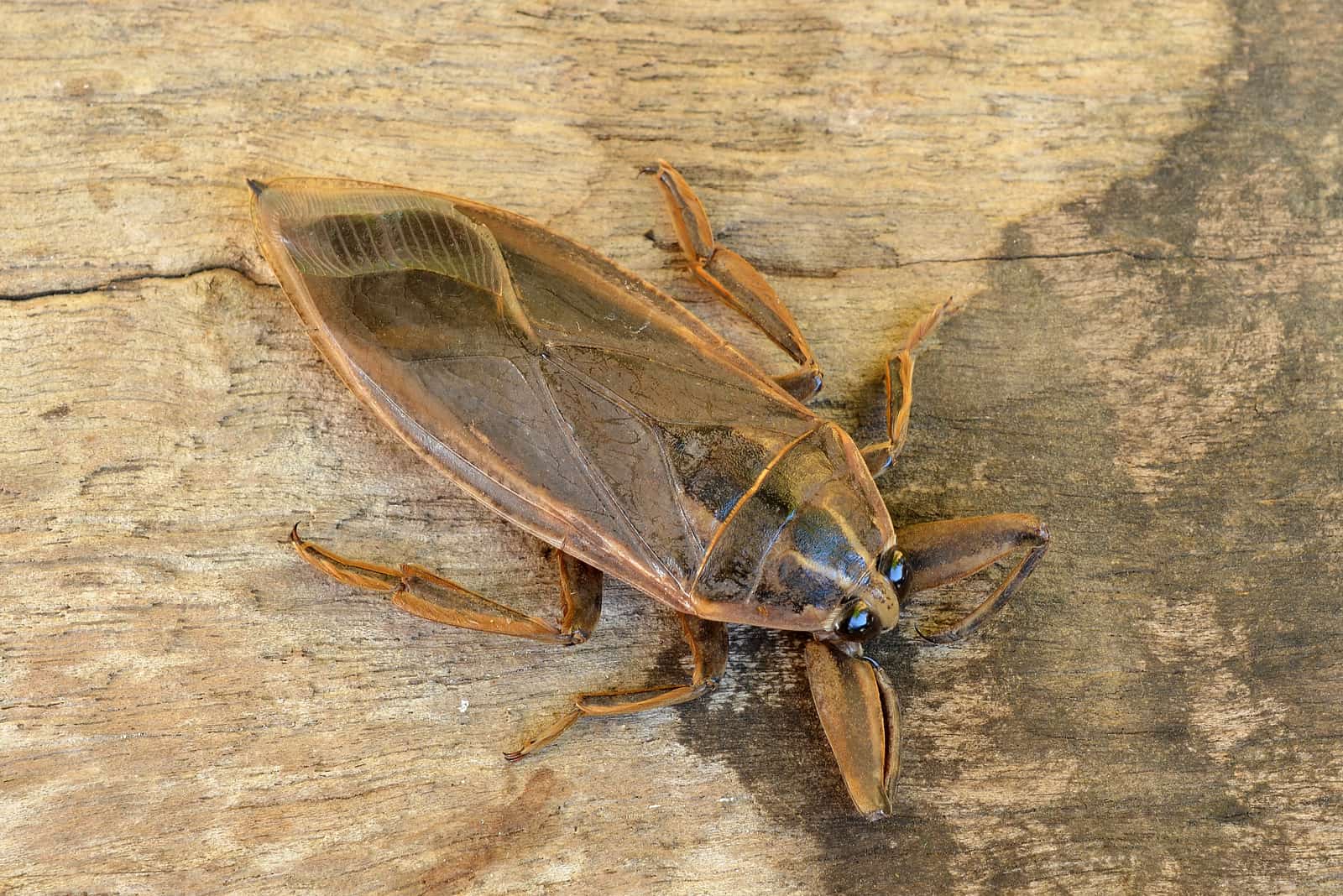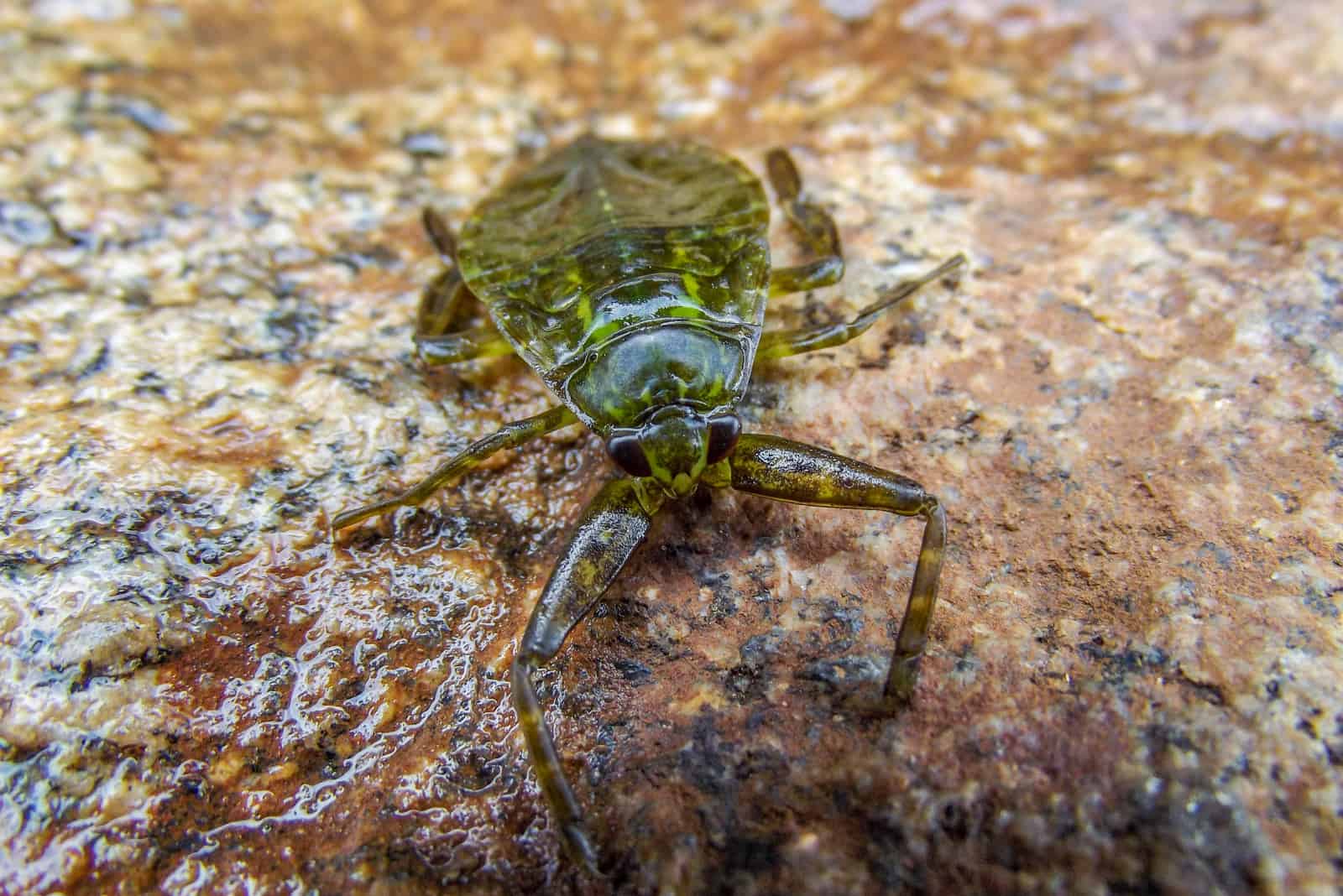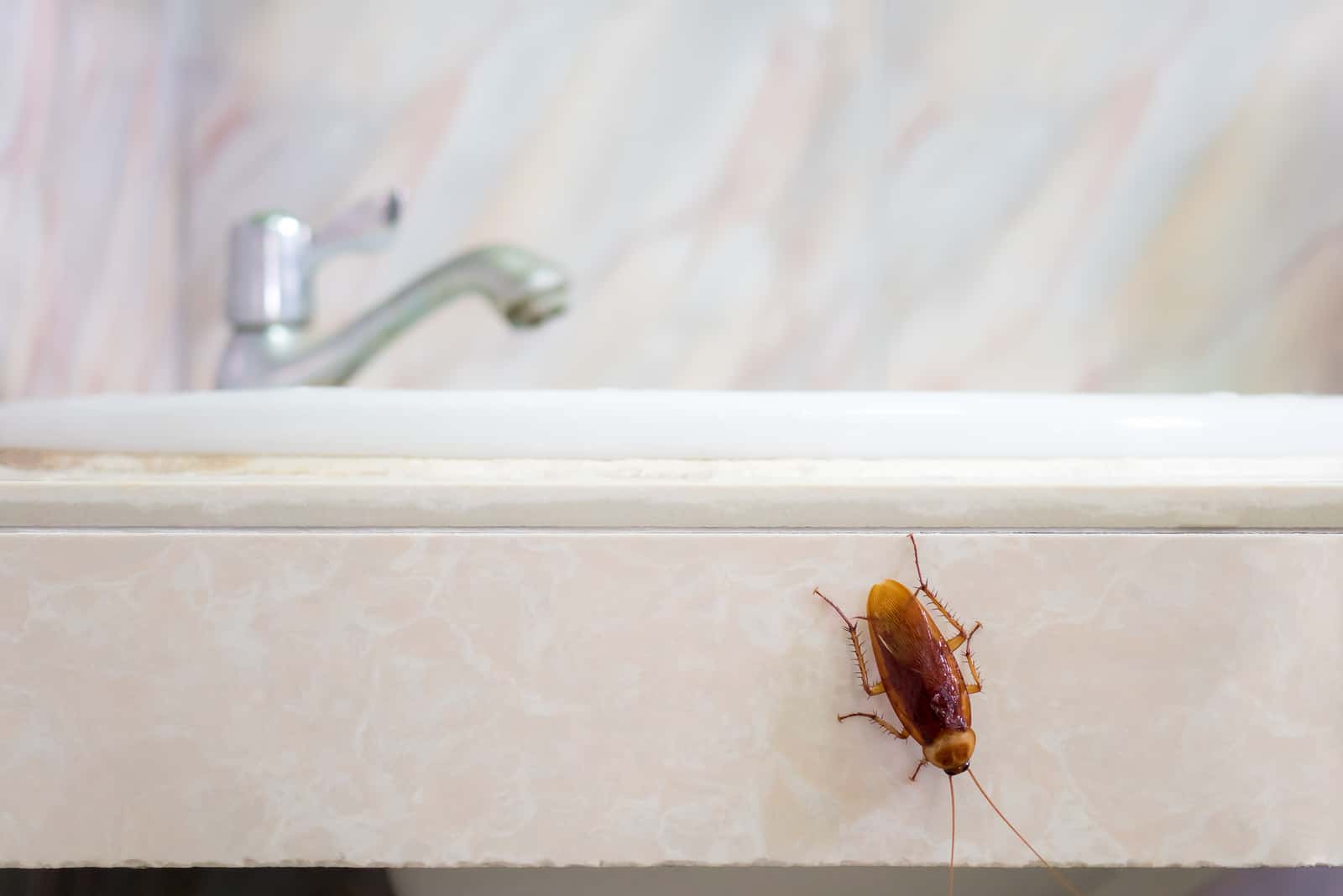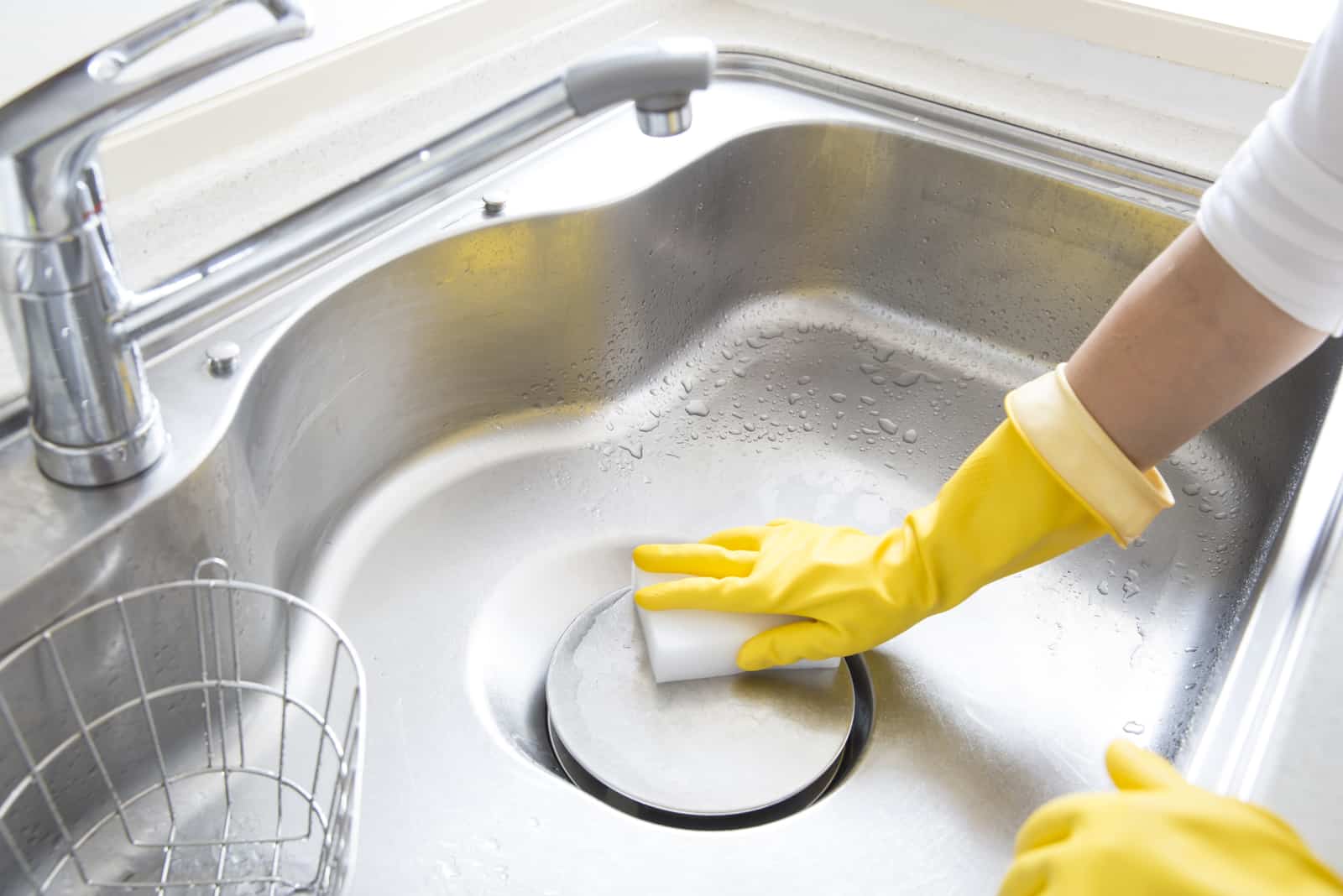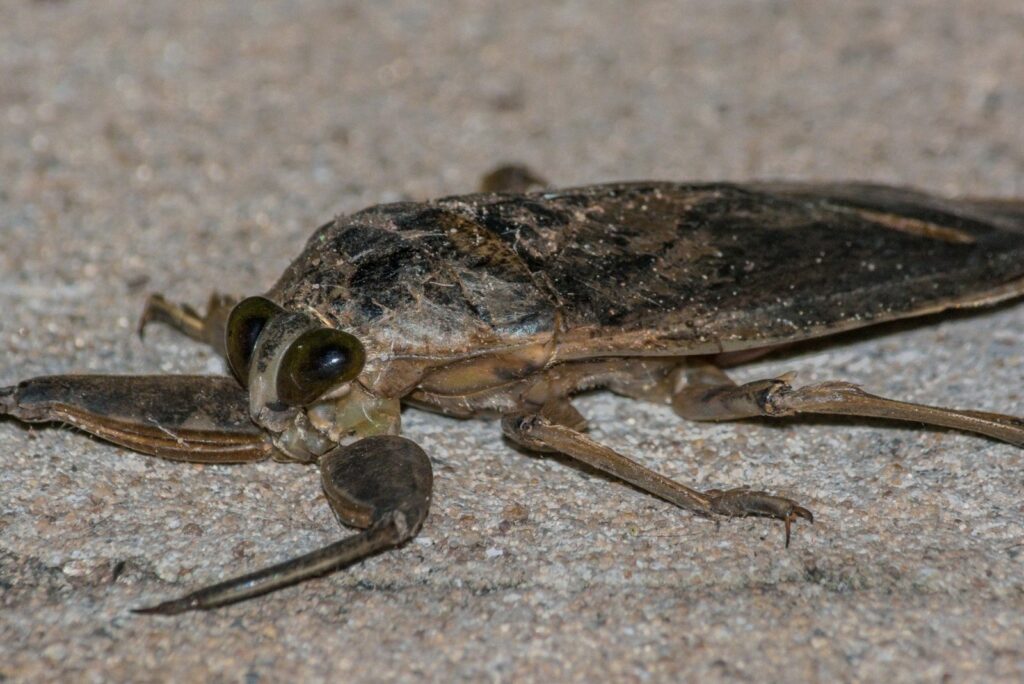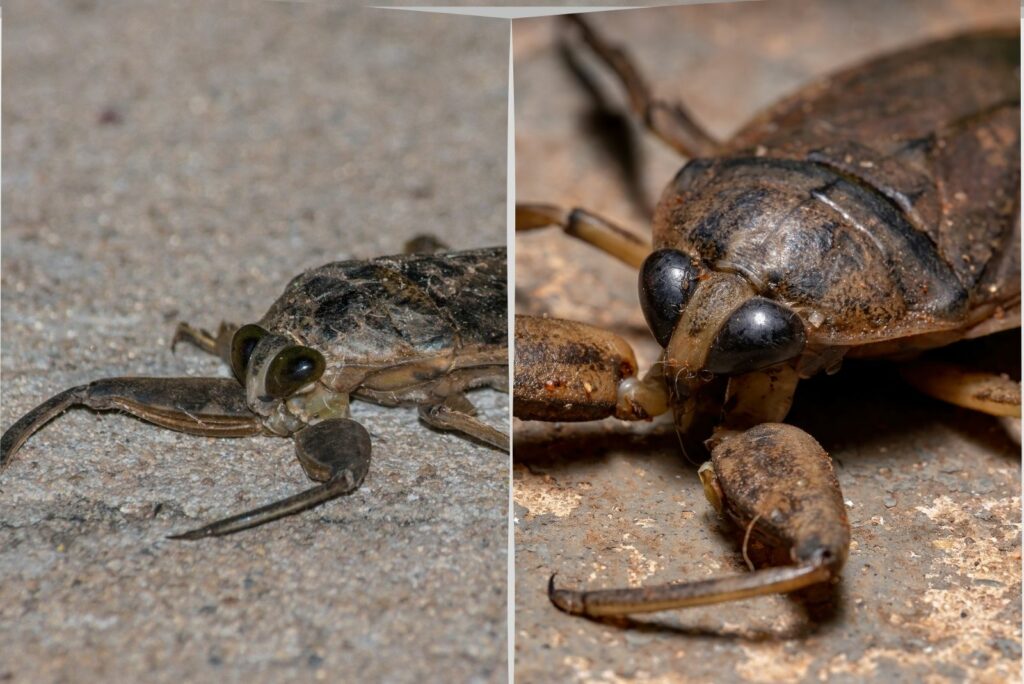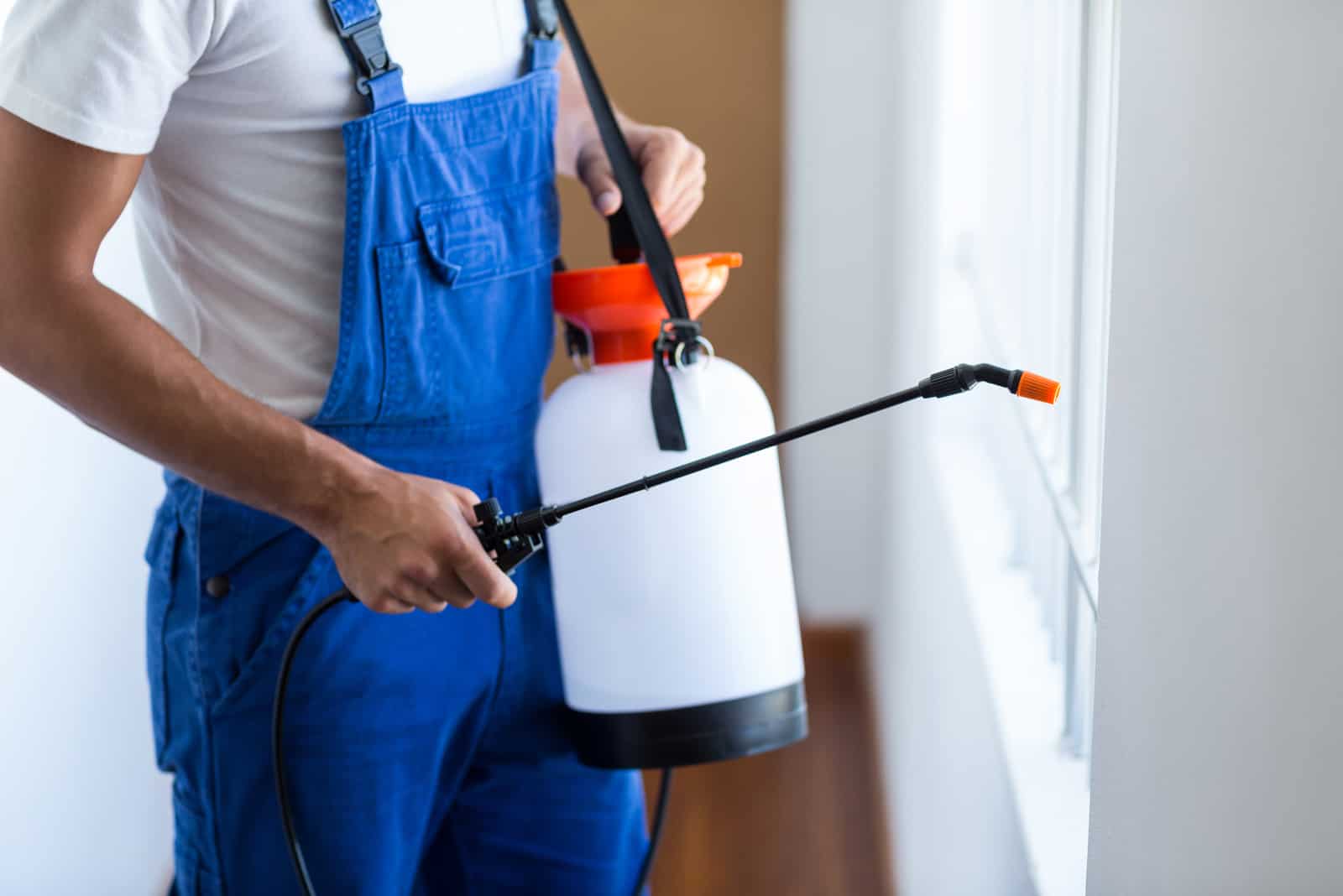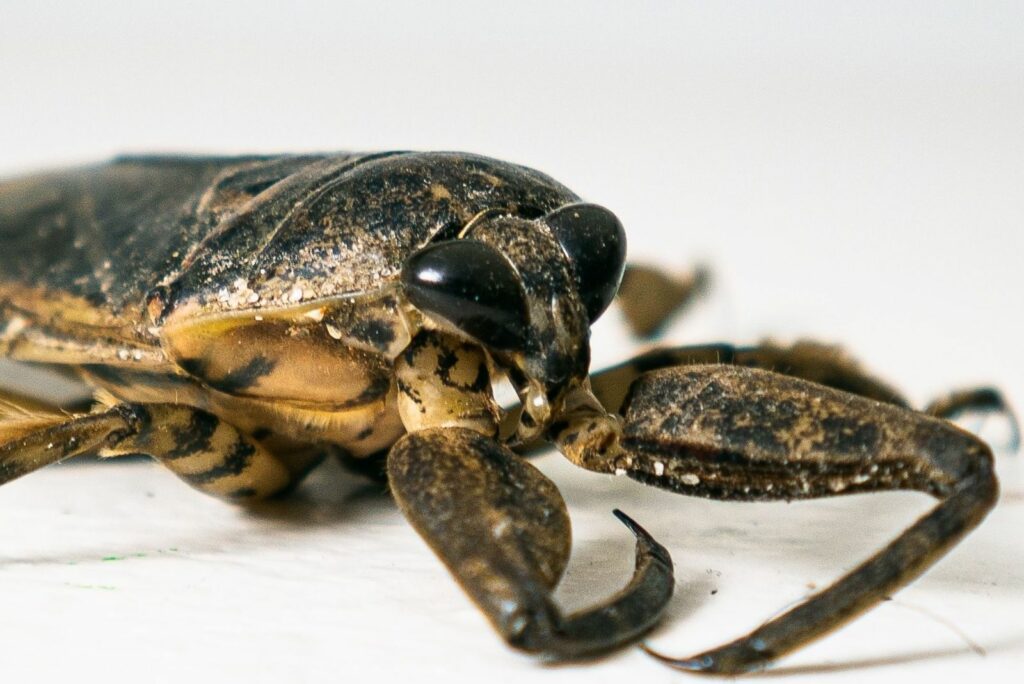If I had to choose the most annoying bug ever, the award would go to the waterbug. These cold-blooded creatures seem to come out of nowhere.
I remember that we had a water bug infestation last summer, so I understand your concern.
If you are asking yourself “why do water bugs come out in the summer?”, you are in the right place to find the answer.
I’ll go through all the reasons these tiny bugs come out and discuss their natural habitat. I’ll also tell you where to find these bugs in your home, i.e., where they hide and how to know if you are dealing with a water bug house infestation.
Don’t worry; after reading this article you’ll know how to get rid of water bugs in house and how to prevent them.
Let’s get started!
Why Do Water Bugs Come Out In The Summer
Water bugs come out in the summer on a quest for food and water as their natural habitat dries up during the summer months.
So, what are water bugs? They are aquatic pests and they belong to the Hemiptera order. Other representatives of this order are scorpions.
Why on earth would these unattractive bugs invade our households?
The answer is pretty simple; during summer, humidity is higher in our houses than outside since we have bathrooms, kitchens, and other water sources, which increase humidity.
Damp areas such as basements can also serve as the perfect place for water bugs to infiltrate.
As far as the winter is concerned, just because you don’t see water bugs, that doesn’t mean they aren’t there. During winter, these tiny bugs hibernate.
Fortunately, water bugs can’t live in your home for long, unlike bed bugs, which are present the entire year. It is not their natural habitat. Water bugs will look for other places to inhabit or leave to hibernate when summer is over.
I’m sure you’ve seen water bugs come out at night because of overhead lights, unlike cockroaches, which are afraid of bright light. It can be said that water bugs are not cowards, or in other words, they aren’t scared of anything (which is one more problem for us). Bright light will attract them.
Where Do They Come From?
Luckily, households are not the native habitat of these aquatic pests.
They don’t like houses much; any damp area outdoors will serve better.
Their natural home is the areas around ponds, marshes, sewage systems, and pools with standing water.
This is the main reason any water source in your home will attract them since it reminds them of their home.
Water bugs will also be attracted to light sources such as street or neon lights.
So, what do water bugs eat? They mainly feed on small fish, and they won’t be pleased with the food that you have in your homes. That is one of the main reasons they can’t survive and live permanently in households (what a relief!).
Another food source for these little creatures is insects.
Where To Find Them
As mentioned above, these aquatic bugs search for water sources in your household.
Now let’s see a list of the perfect places for waterbugs in your house.
• Kitchens (because of water and food sources; leftovers will also attract cockroaches, especially German cockroaches)
• Bathrooms (moist areas)
• Basements
These naughty bugs can also be present in your gardens or on your porches.
How Do Water Bugs Get Into The House (Entry Points)?
When you see these unattractive bugs in your home or any place around it, it is essential to determine the entry points, or how they come in.
This is a list of the possible entry points:
• Drains
• Toilets
• Faucets
• Leaky pipes
• Baseboards
• Sewers
• Crevices
These bugs will search for drains because pests will most likely breed there. The pests and the water in drains will certainly attract water bugs.
Imagine you’re washing your face and a water bug suddenly appears. Since it’s not afraid of humans, it could ‘attack’ you, which is why they become unpopular.
Water bugs need to go through the plumbing pipes to get to the toilet. The reason why these creatures end up in the toilet is infrequent flushing. If you don’t flush the toilet often (because you don’t use it), these bugs will be attracted by the standing water.
If the water bugs end up in the toilet, they will most likely inhabit the area where there are leaky faucets.
Water bugs end up in basements because of the leaky pipes of drainage systems near them.
One critical fact about the baseboards is that they are where these tiny bugs nest.
The Signs Of Infestation
If you notice any of the following signs, your home may suffer from a water bug infestation.
• If you notice a small number of water bugs, don’t take it for granted. Many other water bugs are likely to be seen running around.
• If you notice an unpleasant smell, it could be water bugs. To attract mates, water bugs will produce an odd smell, and if there is an infestation, this smell will spread throughout the house.
• The leftovers of shells and dead skin are one of the surest signs of infestation. The water bugs will leave these traces, especially in kitchen cabinets or on the floors of bathrooms. Shells can also be found in places where water bugs breed after the eggs hatch.
• Any dark-colored streak marks may be water bugs. Water bugs are likely to leave their droppings on the different shelves, on the floors, near baseboards, or on plates with food leftovers left in the sink overnight.
How To Get Rid Of Water Bugs?
There are two ways to remove water bugs from households.
The natural way is always the best solution, but sometimes it doesn’t work.
On the other hand, products that contain different chemical substances will solve the problem of a water bug infestation sooner.
How do you kill water bugs? The natural substances that can help to get rid of water bugs are:
• Baking soda
• Soap
• Alcohol
• Vinegar
• Natural pesticides (like boric acid)
• Essential oils (peppermint or citronella)
If you decide to use natural cures, just pour them into the water bugs’ nest.
Be careful with boric acid; sprinkle a thin layer over the nest. It is poisonous to water bugs, and when they ingest the boric acid, they will die.
You can also add some sugar. The mixture containing boric acid and sugar should be sprinkled over any places where water bugs can appear (areas with high moisture). This will create a sort of waterbug trap.
As far as essential oils are concerned, the best way to use them is to mix a couple of drops with water and spray it over the nest.
There is one more natural remedy called diatomaceous earth, and it is popular because it kills water bugs instantly.
Pest Control
If you are afraid of any consequences of waterbug infestation, you should contact pest control companies.
Hire professional exterminators (like I did) and get rid of the water bugs fast. These experts will find breeding places and entry points and remove water bugs forever.
How To Prevent A Water Bug Infestation
It’s always better to prevent than to deal with pest infestation.
Let’s see some possible ways to prevent water bugs from coming to your home.
• Always remove water puddles; this will prevent water bugs from spreading.
• You should clean drains regularly, also clean the sinks and toilet or bathtub drains.
• There are different products you can pour into drains, but if you have vinegar, use it instead.
• Replace any damaged pipes.
• Leaky faucets should be repaired to prevent water puddles.
• Seal crevices or holes to prevent water bugs from laying eggs.
• Try to keep your home ventilated.
Are Water Bugs Dangerous?
Water bugs aren’t dangerous for humans since they don’t feed on humans. But waterbugs bite! They bite in between toes, which is how they got the name toe biters.
They will mostly bite you when you swim in your pool—one more reason to hate them.
Giant water bugs won’t cause any harm. Allergic people can react differently to the bite and swell up or vomit after being bitten, but don’t worry; these are very rare cases.
How Do You Treat The Bug Bites?
Try not to scratch the wound, and prevent itching by using a bandage.
The wound should be cleaned with rubbing alcohol, hydrogen peroxide, or any other antibacterial ointment.
Water Bugs vs Cockroaches (Roaches)
Are water bugs roaches? Although very similar in different aspects, water bugs and cockroaches (often called palmetto bugs) are not the same insects.
Water bugs resemble the water species of cockroaches: oriental cockroaches or American cockroaches.
They are different in their color, size, the way they bite, and the locations they inhabit. Many people often refer to cockroaches as brown water bugs, but that’s not the correct term.
Cockroaches belong to the Blattodea order. Termites, for example, also belong to this order.
Water bugs can be brown or black, and cockroaches can be tan to light brown, which means that water bugs are darker in color.
Water bugs are larger in size; cockroaches can grow up to 1.5 inches, and waterbugs can grow up to 2 inches.
When it comes to their looks, cockroaches have antennas and water bugs have pincers near their mouth.
Water bugs inhabit warmer places and moist areas, but they can’t survive directly in the water. Cockroaches can survive in water, but they choose not to.
Now we come to one fact that I’m sure you’re interested in, biting. So, water bug vs cockroaches, who’s worse? Cockroaches don’t bite humans (fortunately), and they run away from the danger the moment they sense it.
On the other hand, water bugs bite humans. That is probably why they got the name toe biters. They won’t run away but rather attack if they feel threatened.
When I got familiarized with this fact for the first time, I felt some relief about cockroaches and became scared of waterbugs.
FAQs
Do water bugs lay eggs on your skin?
No, water bugs don’t lay eggs on human skin. They lay their eggs in debris or floating vegetation, making them less scary.
How do they know when to come out?
Water bugs are insects, and their senses for food sources and temperature regulation wake them up. Any water source will attract water bugs to come out, and they prefer higher temperatures, which is why they come out in the summer.
Why are there so many water bugs?
If you have water sources that attract water bugs, you can expect many water bugs since they are mating.
How do water bugs survive in winter?
Water bugs will survive in winter after finding a place with a stable temperature. Temperature fluctuations are not suitable for them, and that is why they search for shelter and hibernate.
Wrapping Up
Most people ask themselves “why do water bugs come out in the summer?” as water bugs are unpopular and can ruin the entire summer.
Although scary and annoying (like wasps, for example) water bugs aren’t dangerous (if you’re not allergic).
Take all preventive measures, and if they appear, use our methods to get rid of them.
Until next time!

